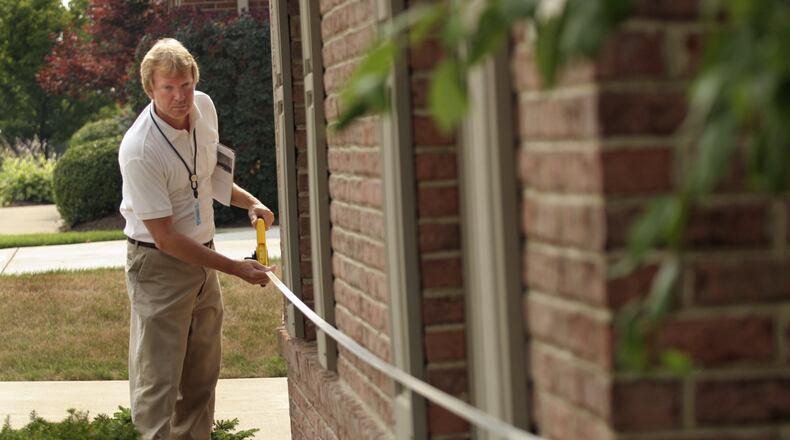And it appears would-be scammers are changing the language on recent solicitations to skirt the law designed to rein in companies selling publicly-available copies of property deeds at exorbitant prices.
MORE: New county scam alert keeps ‘an eye on your property when you can’t’
“They actually put a new twist in them,” said Eric Sears, Greene County recorder. “They are now including a property card from the auditor’s office to get around the deed solicitation itself: a description of the house, the square footage of the house, the acreage it sits on, etc.”
House Bill 52 prohibited a supplier from charging a fee more than four times the fee charged by a county recorder — often no more than $4 for a rarely-needed certified copy — and permitted the Ohio Attorney General to sue on behalf of consumers.
While the companies may no longer provide deeds at $79 or more, they are now selling other property information that’s easily obtained.
Sears has a half-dozen recent solicitation letters in hand sent to Greene County residents. He will turn those over to the Ohio Attorney General’s Office after a meeting next week where the issue will be on the agenda of the Ohio Recorders Association’s Legislative Affairs Committee.
MORE: Local man stole people’s homes, prosecutor says
One company, Local Records Office, with an address on High Street in Columbus, has sent letters to residents in Ohio counties including Greene and Montgomery, officials said.
The state’s Consumer Protection Section has received 27 complaints against Local Records Office dating back to 2013, according to the Ohio Attorney General’s Office.
A letter reviewed by this newspaper showed Local Records Office sent a notice to a new owner of a house in Montgomery County asking for $79 in exchange for a “property profile where you can find the property address, owner’s name, comparable values, legal description, property history, neighborhood demographics, public and private schools report and more.”
Another company, Property Profile, also with a complaint lodged at the Consumer Protection Section, offers a “comprehensive property report that provides a wealth of information on the property…” The company’s $86 fee includes a property tax assessment profile.
This newspaper called both companies for comment Monday. A message was left for Local Records Office, while the number for Property Profile went unanswered on multiple attempts.
RELATED: This old scam has new enemies in an Ohio law and the Butler County recorder
Officials note the information the companies offer to send is available on the counties’ websites for free. And even if a person needed to purchase a certified copy of a deed from the county recorder, the cost would often not exceed $4, said Denise Goll, Butler County’s chief deputy recorder.
“The information they are trying to sell, you can actually get on our county auditor’s office site,” she said. “They’re compiling information from all these public offices that they can turn around and then sell to someone else and make a profit.”
Those buying for the first time in Ohio and unsure of the state’s property law or the elderly are most at risk of falling for the scams, Sears said
The fine print in the letters can often be dodgy and confusing, Montgomery County Recorder Brandon McClain.
“They do say they have ‘no affiliation with any federal, state or local entity,’ but for an elderly person who may not read through it, that is still quite concerning when we look at how our seniors are being targeted,” he said. “They have a disclaimer on there, but the concerning point is that for a lot of our seniors who will get something like this with a pretty official-looking letterhead on it, it’s pretty obvious to me they are trying to deceive our seniors.
Though the wording of the letters continues to evolve to evade the law, the scam is hardly new, Goll said.
“We’ve been receiving them for years. I found a newspaper article dated in 1979 when they were doing the same thing,” Goll said.
“We tell people to put it in the garbage.”
About the Author

